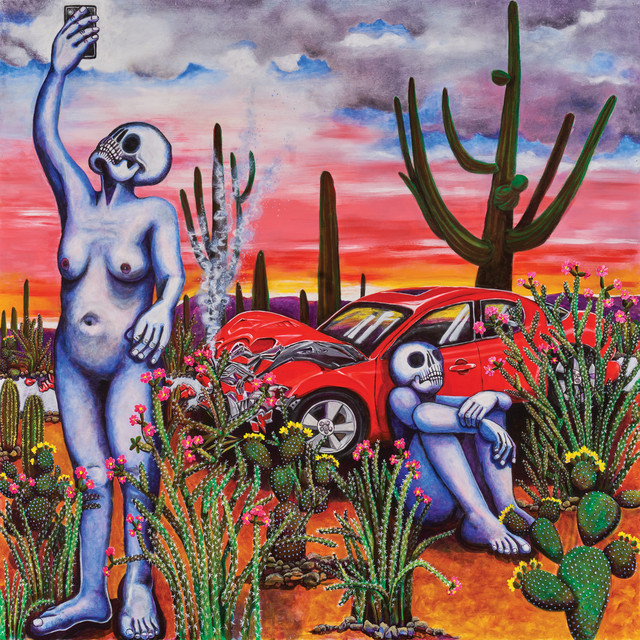Indigo De Souza Releases Her Third Studio Album, “All of This Will End”
May 3, 2023
I did not become a fan of Indigo De Souza until her second album, “Any Shape You Take,” was released. Only then did I fully have the chance to become enraptured by her music. I subsequently sunk my teeth into her raw and profoundly simple lyricism. So, I was eagerly anticipating her third album, titled, “All of This Will End,” on April 28. The album is a distinct yet painfully aching meditation on change and transformation.
Achingly Reminiscent Memories
The album starts with what seems almost as a revelation of the past. Relationships that have come and gone and have left immutable scars in the song “Time Back.” About a minute in, De Souza sings “You’re bad / You suck / You f*cked me up / I’m sad / I’m tired / I want my time back.” She sings, almost just saying the words, over the sound of screaming children in the distance. It’s an aching juxtaposition at the beginning to an overtly introspective sequence of indie pop songs. From the get-go, the listener is primed for what is coming ahead.
The second song, “You Can Be Mean,” is a seething assurance of a past partner’s behavior. It’s intense but liberating in its essence, a visceral declaration of severed ties. It’s a song I can see anyone yelling at the top of their lungs after a toxic breakup. The song “Losing” that follows is just fine in its calm melancholic lyrics and sonic makeup, but it’s one of the weaker songs on the album.
The Liminality of the Human Condition
Another song that stands out is “Parking Lot,” perhaps the most relatable track for me personally. There seems to be a correlation here between the song and the album’s cover art. Both feature two almost lonely-looking skeletons in an overgrown desert, intuitively connecting experiences of feeling lost and dissociated and overall just not feeling good. The connection for me is more innate, yet there is something about the liminality of spaces like parking lots, where so many of our spaces are filled with them, symbols of lonely desperation.
Other standouts include the faster-paced “Smog” about personal anxieties, unfiltered internal thoughts and insecurities. The song “Not My Body” is an innately somatic song about being in a body, imperfections and all. De Souza has a knack for weaving incredibly deep feelings into her music. The album closes out with the soft and introspective beauty of “Younger & Dumber,” a mourning of past connections and the melding into the person De Souza has become today, scars and all. It’s a self-affirmation of the love and the innumerable power she holds in the present. The song acts as a guitar-tinged conclusion to an emotion-filled album. It’s at once a beautiful and intuitive exploration of the human condition and a look back into the pain that makes us who we are — all from the perspective of an artist who keeps on gifting the world with her intensely genuine art.
In a world of increasingly homogenous indie music, Indigo De Souza continuously makes music that stands out from the rest.







